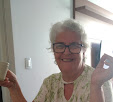JOSEPH
JOSEPH
HOT CLUB
DU NAX
SOMGWRITERS:
CASMAN NELLIE; NELLIE CASMAN; SAMMY CAHN & SAUL CHAPLIN.
HELP THEM: hotclubdunax.com hotclubdunax.bandcamp.com
COUNTRY: NO
ONE INFORMATION ABOUT
ALBUM: WANT
RECORD THE FIRST
LABEL: YOUTUBE
GENRE: JAZZ
YEAR: 2019
HOT CLUB DU NAX DEBUT ALBUM
***
Help us record and produce our first Album!
Gypsy jazz(also known as gypsy swing or hot club
jazz) is a style of jazz developed by the Romani guitarist Jean "Django" Reinhardt in Paris during the 1930s. Because
its origins are in France, and Reinhardt was from the Manouche Sinti clan, gypsy jazz is often called by the French name "jazz
manouche", or alternatively, "manouche jazz" in English
language sources.
Django Reinhardt was foremost among a group of Romani guitarists working in Paris from the 1930s to the 1950s. The group
included the brothers Baro, Sarane, and Matelo Ferret and Reinhardt's brother Joseph "Nin-Nin" Reinhardt.
Many gypsy jazz musicians worked in Paris in
popular musette ensembles in which the lead instrument was typically the accordion
with banjo accompaniment, the latter played with a plectrum for volume.
Elements of both instruments appear in the "gypsy jazz" sound, with
arpeggios and decorations typical of accordionists transferred to the guitar,
and a right hand attack applied to the lead acoustic guitar to achieve maximum
volume in an era of little or no electric amplification. Other elements of the
ensemble sound included the use of stringed instruments only, which was unusual
for its day.
The absence of brass lead instruments and drums
was a novelty in the jazz context (where horn sections and horn soloists were
common), as well as the use of the double bass, which had taken over from
the sousaphone to play bass lines. The absence of drums was
compensated for by a highly rhythmic style of guitar accompaniment called
"la pompe" ("the pump") which supplied both rhythm and
harmonic structure for the soloists. Gypsy jazz can be performed on guitars
alone with or without double bass. But in the Quintette du
Hot Club de France, solo
work alternated between Reinhardt on guitar and jazz violinist Stéphane Grappelli. Later versions of the Quintette featured
clarinet or saxophone as alternate lead instruments to the guitar, and these
are sometimes featured in contemporary gypsy jazz ensembles in place of the
violin, although obviously departing from the "all-strings" format.
Innsbruck based Gypsy Jazz collective Hot Club du Nax
morphed into existence during nocturnal october jam sessions in the year of the
lord 2015. At eponymous bar NAX in Innsbruck, of course. The bands
characteristics are the enchanting voice of London born singer Isobel Cope, as
well as the adorable sizzle of Prague violinist Tomas Novak, as well as the
beguiling praising to Django Reinhardts Swing: Innsbruck’s own guitarists Arian
Kindl and Lukas Bamesreiter. And last but really not least the irresistible
wizard of the double bass, Dario Michele Gurrado from Bologna. Hot Club du Nax
is presenting its debut album Love is where you hang your hat in 2019 on tour in
Austria, Germany, Italy and France. Among some witty arrangements of carefully
chosen standards of the genre, the main part of the album consists of the
band’s original compositions, which stylishly transfer the deeply romantic,
dreamy and at the same time very hot timbre of Gypsy Jazz into here and now.
Psychedelic poems of love entwine themselves with a blazing cold stare around
shady fantasies of power, and wonderful sadness dances through the night with
endless joie de vivre.
“Ah mon frère. Comme j’aime la musique que vous jouez.” –
Django Reinhardt à Stéphane Grappelli
“Oh mein Bruder. Wie ich die Musik liebe die Du spielst.”
– Django Reinhardt zu Stéphane Grappelli
Isobel Cope – Vocals
Tomas Novak – Violin
Arian Kindl – Solo Guitar
Lukas Bamesreiter – Rhythm Guitar
Dario
Michele Gurrado – Double Bass
A certain maid I know
Is so afraid her beau
Will never ask her
Will she name the day
He calls on her each night
And when she dims the light
It's ten to one
That you would hear her say
Oh Joseph, Joseph
Won't you make your mind up
It's time I knew just how I stand with you
My heart's no clock
That I can stop and wind up
Each time we make up after being through
So listen Joseph, Joseph time is fleeting
And here and there my hair is turning grey
My mother has a fear
Wedding bells I'll never hear
Joseph, Joseph
Won't you name the day
Oh Joseph, Joseph
Won't you make your mind up
It's time I knew just how I stand with you
My heart's no clock
That I can stop and wind up
Each time we make up after being through
Oh Joseph, Joseph, Joseph, time is fleeting
And here and there my hair is turning grey
Yeah ¡
My mama has a fear, wedding bells I'll never hear
Oh Joseph, Joseph, won't you name the day
Oh Joseph, Joseph, won't you name the day
Oh Joseph, Joseph, won't you name the day.







0 comentários:
Postar um comentário